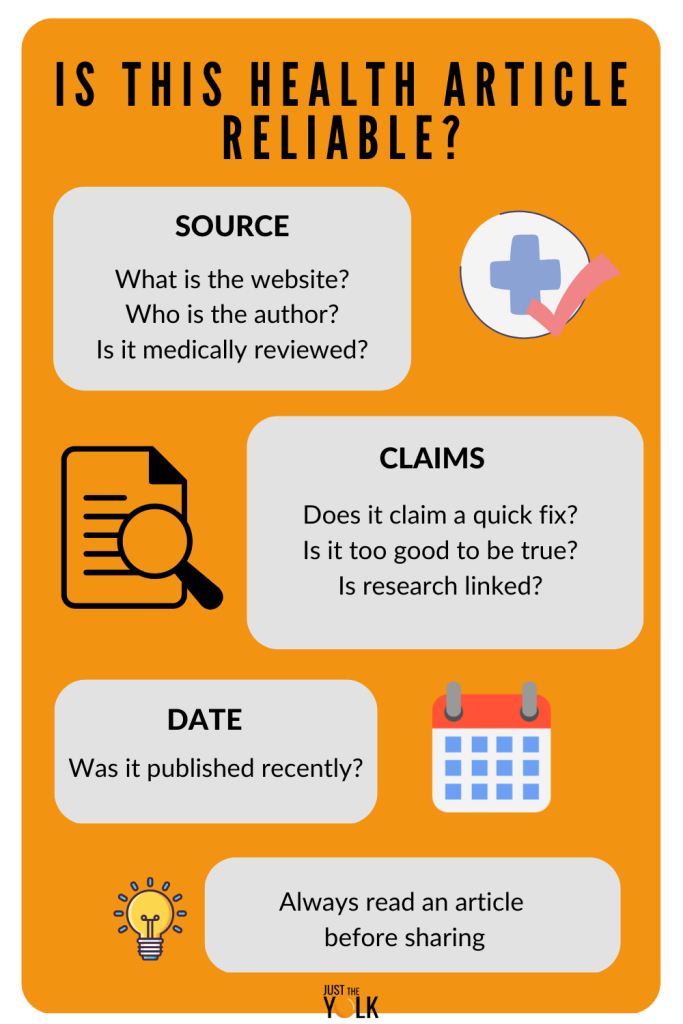This article refers to nutrition, exercise, and overall wellbeing articles, not medical or pharmaceutical.
The Yolk
The Source
- Website
- Reliable websites include .edu and .gov and sometimes .org or .com
- Reliable based on qualifications and research
- Medical journals and universities are reliable sources
- Is the website filled with ads or selling you products?
- Author
- Should have relevant qualifications or have the article medically reviewed
- i.e. someone not a doctor is capable of extensive research, if shown
- More than one expert’s viewpoints are a plus
The Claims
- Title
- The title is not always representative of the article’s content – so read the article
- Does it seem too good to be true?
- Quick Fixes?
- Health is complicated and there’s not always clear answers
- Does it discredit current knowledge?
- Does it call certain approaches or foods “good” and “bad”?
- Links
- Are the claims backed up with links from reliable sources?
The Date
- Health information can change rapidly
- Consider articles that are the most recent (a few years maximum)
Additional Notes
- Read more than one article on a topic before sharing or deciding on an answer
- You will find the answer you desire if you search for it – be aware of the above points
Perspective
Make sure to read health articles before sharing with others
- Sharing false health information gives more credit to those creating it
- You may jeopardize someone’s health or wellbeing with false information
Resources


